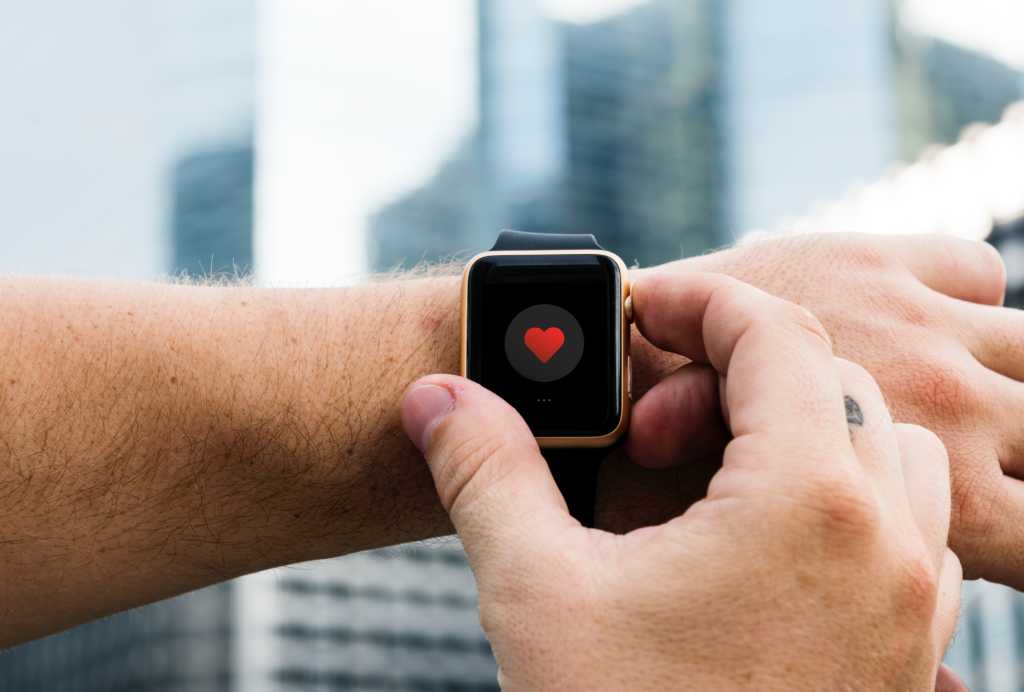A new heart monitoring feature on the Apple Watch likely saved one man’s life. When 46-year-old Ed Dentel installed the latest update on his watch, complete with an electrocardiogram app, it led to a startling discovery.
“The application on the launch sounded off right away with atrial fibrillation — not something I’ve ever heard of, but since I’m in pretty decent health and never had a problem before, I didn’t give it much thought,” the 46-year-old told ABC News.
Mystery Passenger Gives Up First-Class Seat for Mother, Baby Heading to Children’s Hospital
Dentel, who works as a communications consultant in Richmond, Virginia, has no history of heart issues, and stays active with regular taekwondo, biking and skiing.
“I figured something was glitchy, so I set everything down turned in for the night,” he said.
But when he tried the watch out again the next morning, he got the same troubling result.
“Right away: AFib. So I shut everything down and turned it back on and tried it again,” he said. “Same result, same result, same result.”
Atrial fibrillation, also referred to as AFib and AF, is a type of irregular heart rhythm that doesn’t always show symptoms. If untreated, the condition can lead to weakened heart muscles, poor blood flow and even strokes.
Still skeptical, Dentel tested his wife — twice — but her results came back normal.
“I put it on my left wrist, on top, AFib. I put it on my left wrist, on the bottom, AFib. I switch to my right wrist. Same thing. So, starting to get a little bit alarmed here,” he said.
Dentel reluctantly drove to a local urgent care clinic. But when he arrived to find a packed parking lot and waiting room, he almost turned right around.
“I thought, ‘This is silly. I’ve got meetings, I’ve got stuff to do. I don’t have time to sit here and wait,'” he said.
But after checking the watch “one more time” and receiving the same result, he decided to stay.
Though Dentel said he felt like a hypochondriac explaining to the physician that his watch detected a heart problem, after a brief EKG scan, the watch’s results were confirmed.
“Yup, you’re in AFib,” a doctor told him. “This thing may have just saved your life.”
“That’s when I started learning about what AFib is and what its impact can be and how important it is to get notice of it really early in your life,” Dentel told ABC.
Instead transferring him to a hospital right away, the doctor referred Dentel to a cardiologist who later confirmed the watch’s initial diagnosis.
“I was dealing with a case of atrial fibrillation that I never knew I had and probably wouldn’t have known anytime soon,” he said.
After the surprising discovery, Dentel recalled an incident earlier this year that was, in retrospect, rather eery. Sometime in “late spring or early summer,” he went to see a doctor after experiencing some chest pain. At the time, the EKG results came back normal, and he was diagnosed with heartburn.
“So just as recently as late spring or early summer, everything was ideal and perfect. Sometime after that … it kicked off,” he said.
While AFib can be linked to smoking, high alcohol consumption, stress, high blood pressure and obesity, Dentel’s case serves as proof that an otherwise perfectly healthy person could be at risk and not even know it.
“It looks like my heart’s a jazz drummer,” he said, describing the recent EKG results. “I can be sitting there, and my heart rate will go from 70 to 90 to 110 and back to 60. When I look at my wife’s readout on the watch, it’s very nice and even and consistent.”
Dentel started medication last Friday and will have a series of follow-up appointments this week, according to ABC.
(H/T: ABC News)



